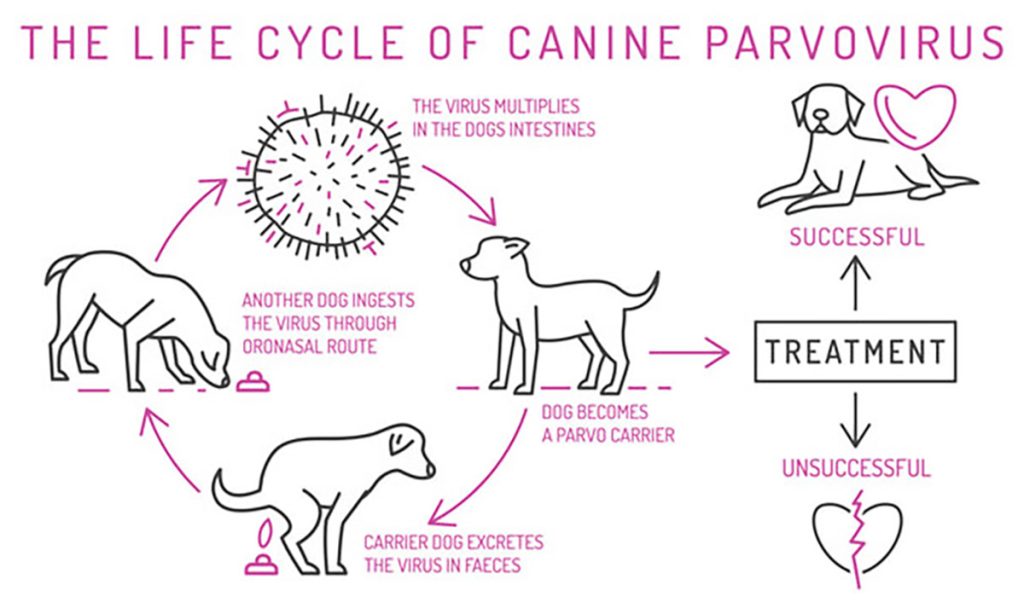
High Desert Hounds has had a busy start to 2024, with the puppy population higher than usual for this time of year. With spring here, we expect the number of unplanned litters and stray dogs having new litters to increase even more significantly. Unfortunately, an increase in population also means an increase in the risk of diseases, such as Canine Parvovirus, commonly known as “parvo,” which is prevalent in Questa and the surrounding areas. It is one of the most serious and contagious viruses dogs can get, and puppies are especially susceptible.
Parvovirus can survive for weeks, months, or even years on surfaces that are invisible to the human eye. Spring is a particularly dangerous time as it can live in our soil for an extended period without a host. Rain and snowmelt tend to bring it to the surface. It is a challenging virus to kill, highly infectious, and it carries a high mortality rate. However, it IS preventable, with proper precautions and vaccinations.
The best way to prevent parvo is to get puppies started on vaccinations as soon as they are 6 to 8 weeks old. Puppies should only socialize with fully vaccinated dogs until they can be fully vaccinated themselves. It is wise to avoid areas where unvaccinated puppies and dogs have been, including parks and public areas where many dogs visit or are known to roam. The most common symptoms of parvo are lethargy, vomiting, diarrhea, loss of appétite and dehydration. The quicker a puppy is tested and receives treatment if showing any of these symptoms, the better chance they have.
High Desert Hounds is excited to get out into the community to spread awareness about this life-threatening and avoidable disease. If you encounter dogs or puppies showing symptoms, isolate them from other animals and contact a veterinarian’s office immediately. It is important to note that humans cannot get this disease from dogs, but it can live on your clothing, hands, and shoes and be passed to other animals in your household without proper decontamination. If you need assistance in obtaining medical care or additional information, please contact High Desert Hounds at (469) 644-8323, or HighDesertHoundsTaos@gmail.com or through our website at www.HighDesertHounds.Org.



